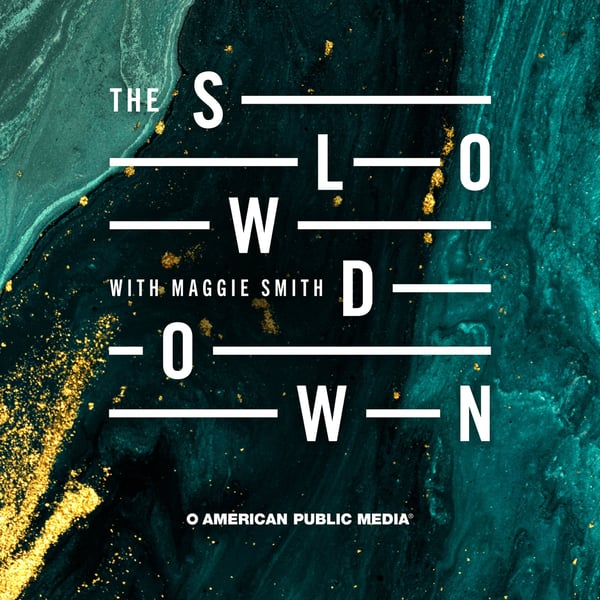1047: To The Stone-Cutters
The Slowdown: Poetry & Reflection Daily
American Public Media
4.8 • 1.2K Ratings
🗓️ 23 January 2024
⏱️ 7 minutes
🧾️ Download transcript
Summary
Today’s poem is To The Stone-Cutters by Robinson Jeffers.
The Slowdown is your daily poetry ritual. This week, we’re sharing listener stories from the Twin Cities Book Festival. In this episode, our producer, Myka Kielbon, writes… “Our listener, Morgan, found writing poetry to be a tool to connect not only with her father’s homeland, but to connect with the people in her life, with her poetic lineages, with the body, and with nature. By focusing on the way poetry feels in the body, Morgan reminds me of a route to access language that sometimes feels insurmountable. Today’s poem, at first, leans into the cynicism of the Romantics, into the truth of mortality. But as it turns, it finds solace in what we create.”
Celebrate the power of poems with a gift to The Slowdown today. Every donation makes a difference: https://tinyurl.com/rjm4synp
Transcript
Click on a timestamp to play from that location
| 0:00.0 | This fall I spoke with listeners at the Twin Cities Book Festival about the place of poetry in their lives. |
| 0:08.0 | This week we're sharing their stories. worries. and half in Baltimore, Maryland. I'm super lucky because poetry is a huge part of my daily life in my daily practice. |
| 0:27.0 | I am a poet and I love to just write poems to my friends, to my grandma, |
| 0:32.0 | to the natural world around me I write in and out of Italian into |
| 0:36.1 | English so that everyone that I love can read my poems so in my daily |
| 0:41.0 | practice it's really just a nourishing way of telling someone that you love them and that you're thinking about them and what they mean to you in your life and how they create a network of joy around you. |
| 0:51.0 | I started with small rhymes in Italian. My dad's from Italy and |
| 0:56.4 | so I was always raised bilingually and it felt like a touchstone to |
| 1:00.4 | understanding a culture that I couldn't live in is I got these poems that my dad |
| 1:04.3 | would recite in elementary school because it was part of their tradition in Italy to |
| 1:08.2 | recite fundamental poems and so they kind of became a prayer in like a way that I could connect to a place |
| 1:15.3 | that I couldn't be in presently all the time and then in high school shout out to my |
| 1:20.5 | 12th grade English teacher, Mika Hopkins, who taught me basically that it is a |
| 1:26.1 | space that you can enter in. She taught me that I could also write creatively. I didn't just |
| 1:30.0 | have to recite things that came before me. I love the ways that poets gather us together |
| 1:35.2 | around that fire and tell stories and acknowledge their lineage and speak to that and also speak to the |
| 1:41.1 | future and I think that literary events like the one that we're at right now is how we get |
| 1:46.3 | people excited about poems off the page and really remember that it was always an oral |
| 1:51.2 | tradition and that being said I think that I love also seeing things |
| 1:54.9 | on the page and the ways that we get to invent language |
| 1:58.8 | as poets and reconstruct it and then challenge people |
| 2:02.2 | to say, hey, read this poem that might look all over the page |
... |
Please login to see the full transcript.
Disclaimer: The podcast and artwork embedded on this page are from American Public Media, and are the property of its owner and not affiliated with or endorsed by Tapesearch.
Generated transcripts are the property of American Public Media and are distributed freely under the Fair Use doctrine. Transcripts generated by Tapesearch are not guaranteed to be accurate.
Copyright © Tapesearch 2025.

